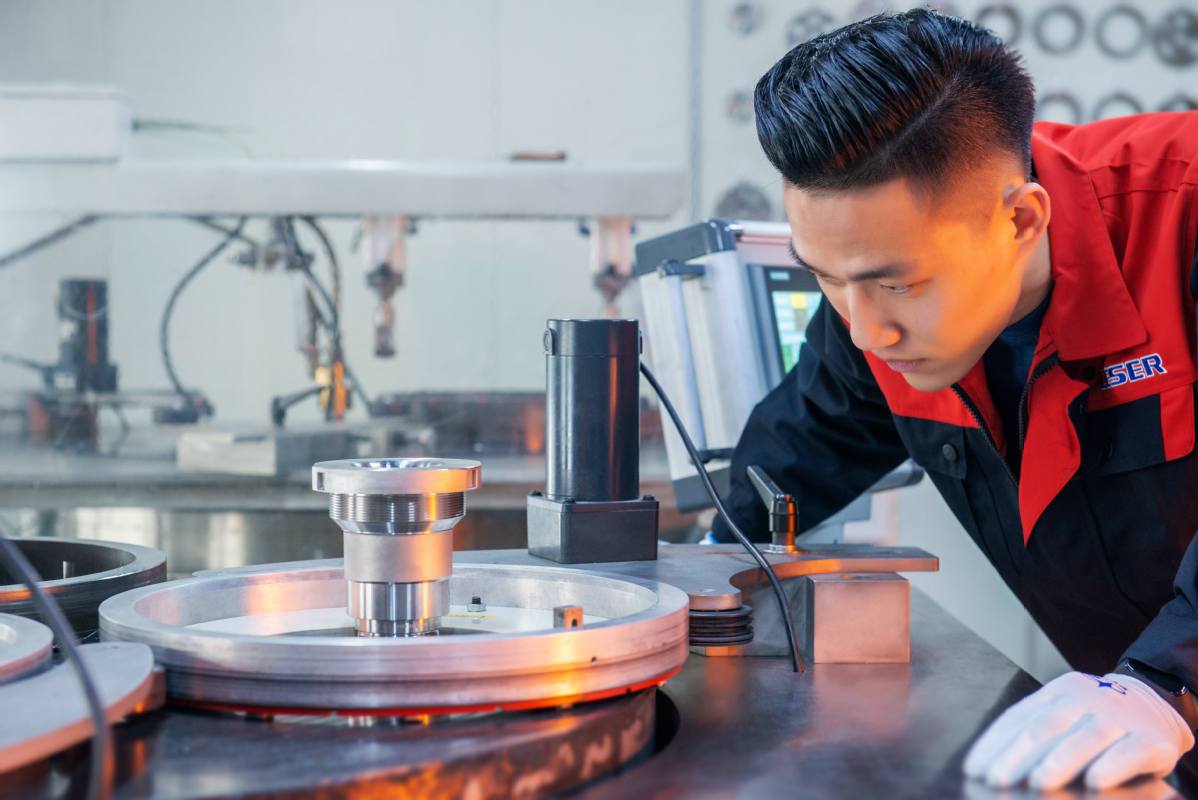LESER GmbH seeks robust development in China ahead


Safety valve maker eyes expansion in food, pharma sectors amid soaring demand
Upbeat about the Chinese market, LESER GmbH & Co KG, a German safety valve manufacturer, will further expand its market share in the country's food and pharmaceutical industries to maintain robust growth in the years ahead, said a senior executive.
Many opportunities come from China's ongoing industrial upgrades and its clients' soaring demand for more advanced production and operational machinery, especially those from chemical, petrochemical, oil and gas production, industrial gas and equipment manufacturing industries, said Tim Jiang, general manager of LESER — The Safety Valve (Tianjin) Ltd.
Tapping into the potential of fast-growing food and pharmaceutical businesses in China aside, the Hamburg-based group, supported by its manufacturing base in Tianjin and sales and services branches in cities like Beijing, Shanghai, Guangzhou, Guangdong province and Chengdu, Sichuan province, will continue to empower digital transformation, enhancing traditional mechanical products with digital attributes, and providing its clients with more customized valves.
"As a major manufacturing powerhouse in the world, China's demand for safety management in its industrial processes has been steadily increasing. Safety valves play a crucial role in these processes by regulating system pressure, preventing equipment damage and ensuring the safety of personnel in the event of excessively high pressure," said Jiang.
When there is fluid flowing within pipelines, storage tanks or pressure systems, it is essential to prevent the pressure from exceeding a certain limit. Failure to do so can result in equipment damage or, in severe cases, explosions, leading to the loss of people, the environment and industry. Safety valves can be considered as the final line of defense in pressure protection within the entire system.
Taking the chemical industry for example, there are many different types of factories, including those that produce basic organic and inorganic substances and chemicals, fertilizers, soaps, detergents, paints and coatings, that have diverse requirements for safety valves, ranging from safeguarding against toxic and corrosive materials to handling steam or thermal expansion in pipelines, among other considerations.
Typically, in the case of toxic or expensive materials, there are specific requirements for gas tightness, and minimizing the loss of the medium is imperative, said Jiang.
In the petrochemical industry, refineries, ethylene, methanol plants, fertilizer factories and other petrochemical facilities have diverse requirements for safety valves due to the different products they make, he noted.
"These requirements encompass protection against thermal expansion, high pressure, back pressure and varying discharge capacities," said Jiang, adding that apart from standard products, LESER offers customized solutions tailored to the specific needs of customers, such as safety valves with lift indicators.
With its mature technology, customized solutions and service packages, LESER not only supplies various safety valve products to domestic companies, such as China National Petroleum Corp and China Petroleum& Chemical Corp, but also to projects operated by multinational corporations like BASF SE and Wacker Chemie AG, across China.
Speaking at the company's 10-year anniversary ceremony of establishing its first plant in China in Tianjin in mid-September, Jiang said that China's supportive policies will further incentivize foreign companies to extend their business activities within the country. He predicted that the company's sales revenue in China for this year will be six times higher than its sales figure in 2013.
China's opening-up measures will continue to push global companies from the high-end manufacturing sector to further transform traditional industries with smart manufacturing technology, he said.
Against the backdrop of a global economic slowdown and subdued cross-border investments, foreign direct investment into China's manufacturing industry grew by 6.8 percent year-on-year to 239.95 billion yuan ($32.86 billion) in the first eight months, while that of high-tech manufacturing soared 19.7 percent on a yearly basis, the Ministry of Commerce said.
As China's manufacturing industry continues to grow and expand, demand for safety valves will continue to rise, making them increasingly indispensable in the country's manufacturing industries, said Sun Fuquan, vice-president of the Beijing-based Chinese Academy of Science and Technology for Development.
With China entering a new era of green and innovation-led growth, electronics, green energy, chemicals, automobiles and other manufacturing fields will be key fields for foreign investors to develop in China in the coming years, as the country presses ahead with its pursuit of high-quality growth, said Sun.




































